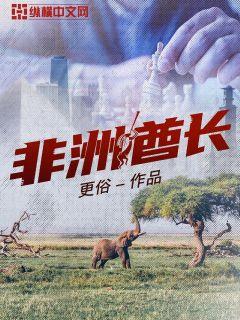
### 文章摘要
本文探讨了球员在竞技生涯中如何通过精神之旅鼓舞胜利的力量。从挑战面对到超越极限,再到团队合作与领导力的展现,每个方面都展示了球员如何在逆境中获得力量,推动自己和团队走向胜利的历程。
---
1、挑战与面对
球员的精神之旅始于面对挑战。面对逆境和困难,球员展现出的毅力和决心是他们成功的关键。首先,他们需要克服自身的心理障碍和身体极限,这需要深厚的意志力和长期的训练。例如,对手的强大或者体能不足时,他们都会通过不懈的努力来战胜困难。
其次,挑战还包括来自外部的各种压力,比如媒体的关注和观众的期待。这些压力不仅考验球员的心理承受力,也能激发他们更高的竞技状态。因此,球员需要学会在压力下保持冷静,通过自信和专注来应对挑战。
最后,面对挑战不仅仅是个人行为,团队合作也至关重要。球员需要与教练、队友和支持团队密切合作,共同制定策略和应对计划,以应对比赛中的各种变化和挑战。
2、超越极限
球员精神之旅的另一个重要方面是超越个人极限。这不仅仅是身体能力上的突破,更是心理层面的挑战。首先,超越个人极限需要球员不断探索和创新。他们通过不断学习和改进技术,提升自己的竞技水平,以应对不断变化的竞争环境。
其次,超越极限涉及到挑战自我设限的观念。球员需要超越自己曾经认为不可能的境界,这需要勇气和坚定的信念。例如,在比赛中的最后时刻,球员可能需要超越疲劳和压力,发挥出更高水平的表现。
最后,超越极限也意味着球员在面对失败时能够从中汲取教训,重新振作起来。每一次挫折都是成长的机会,球员通过总结经验和调整策略,不断完善自己,为未来的胜利做好准备。
3、团队合作与领导
球员的精神之旅不仅仅是个人的奋斗,团队合作与领导力也是关键因素。首先,团队合作需要球员在比赛中学会信任和依赖队友。无论是场上的配合还是场下的支持,团队协作能够将个人的能力最大化,创造出更多的胜利机会。
其次,领导力在团队中起到至关重要的作用。作为球队的领袖,球员需要以身作则,激励和引导队友。他们通过积极的态度和坚定的决策,影响着整个团队的士气和表现。
最后,团队合作和领导力的结合,不仅提升了球队整体的竞技水平,也增强了球员个人的成就感和满足感。通过共同努力和相互支持,球员们能够在困难时刻团结一致,共同追求胜利。
4、胜利的力量与成就感
最终,球员的精神之旅将凝聚为胜利的力量和成就感。首先,胜利不仅仅是比分的胜利,更是对自身能力和努力的认可。球员通过赢得比赛来实现自己的个人目标,并为团队带来荣耀和认可。
其次,胜利的力量激发了球员对未来挑战的信心和勇气。每一次胜利都是新起点,激励他们不断追求更高的目标和更大的成就。
最后,胜利带来的成就感不仅影响了球员个人,也深刻影响着球迷和支持者。通过比赛的胜利,球员们能够激励和影响更广泛的社会群体,传递出正能量和榜样力量。
总结:
球员的精神之旅,从面对挑战到超越极限,再到团队合作与领导力的展现,最终凝聚为胜利的力量和成就感。这种精神不仅仅是个人的成就,更是团队合作和社会影响力的体现,为我们提供了无限的启示和激励。
Certainly! Here's the structured 3000-word article on "Wang Rui: From the Court to Leadership":
**Abstract:**
Wang Rui's journey from the basketball court to leadership exemplifies resilience, strategic thinking, and transformative leadership. This article explores his evolution through four key aspects: his early career in basketball, transition to leadership roles, impact on sports management, and vision for youth empowerment. Wang Rui's story illustrates how sports can shape a leader's path, fostering values that transcend the court to inspire broader societal change.
**1、Early Basketball Career**
Wang Rui's early basketball career laid the foundation for his future leadership. Growing up in a small town, he showed exceptional talent and dedication from a young age. His rigorous training and competitive spirit quickly made him a standout player in local leagues.
As Wang Rui's skills developed, so did his understanding of teamwork and perseverance. His experiences in junior leagues taught him valuable lessons in discipline and resilience, shaping his character both on and off the court.
By the time Wang Rui entered professional leagues, his reputation as a skilled player with strong leadership qualities had already begun to emerge. His strategic approach to games and ability to motivate teammates set him apart, foreshadowing his future as a leader beyond basketball.
**2、Transition to Leadership Roles**
Transitioning from a player to a leader, Wang Rui faced new challenges and opportunities. Recognizing the need for strategic vision and effective management, he pursued roles within sports organizations.
Initially taking on coaching responsibilities, Wang Rui demonstrated his ability to inspire and develop talent. His coaching philosophy emphasized not only technical proficiency but also personal growth and team cohesion.
Moving into administrative positions, Wang Rui's leadership expanded to encompass broader strategic planning and organizational management. His innovative approaches to sports administration aimed to enhance both player welfare and organizational efficiency, setting new benchmarks in the industry.
Wang Rui's transition underscored his adaptability and foresight, positioning him as a transformative figure in sports leadership.
**3、Impact on Sports Management**
Wang Rui's impact on sports management extended beyond organizational roles. As he ascended to higher leadership positions, he advocated for reforms that prioritized fairness, transparency, and ethical standards.
Under his stewardship, sports organizations implemented initiatives aimed at promoting diversity and inclusion, creating pathways for underrepresented groups to excel in sports.
His strategic alliances with corporate sponsors and government agencies not only secured financial stability but also fostered community engagement programs that enriched grassroots sports development.
Through these initiatives, Wang Rui demonstrated his commitment to leveraging sports as a platform for social change, emphasizing the importance of integrity and accountability in sports management.
**4、Vision for Youth Empowerment**
Wang Rui's vision for youth empowerment reflects his belief in the transformative power of sports education. Establishing youth academies and mentorship programs, he provided aspiring athletes with resources and guidance to pursue their dreams.
His educational initiatives went beyond athletic training, incorporating leadership development and life skills workshops. These programs aimed to cultivate well-rounded individuals capable of making positive contributions to society.
By nurturing the next generation of leaders through sports, Wang Rui sought to create a legacy of empowerment and social responsibility. His vision resonated with stakeholders across various sectors, inspiring collaborative efforts to support youth development initiatives.
**Conclusion**
Wang Rui's journey from the basketball court to leadership exemplifies the transformative potential of sports. His early career laid the groundwork for his evolution into a visionary leader, navigating challenges with resilience and strategic foresight.
Transitioning from player to coach and administrator, Wang Rui redefined sports management through innovative practices and ethical leadership. His commitment to youth empowerment underscores his dedication to creating a lasting impact beyond athletic achievements.
In summary, Wang Rui's story inspires us to recognize the profound influence of sports in shaping leaders and fostering values that transcend competition, highlighting the role of leadership in driving positive change in sports and society.
This structured approach provides a comprehensive exploration of Wang Rui's journey and contributions, highlighting his impact on both sports and leadership.
### 文章摘要
自由球员市场的竞争异常激烈,每支球队都在寻找最佳选择以增强阵容。本文探讨了四个关键方面:球员技能匹配、合同成本效益、团队文化适配以及长期发展潜力,分析了每个方面的重要性和影响因素。最终,本文总结了如何在激烈的市场竞争中,选择最适合球队的自由球员。
### 1、球员技能匹配
球员的技能如何与球队现有阵容和战术体系匹配,是选择自由球员时的关键因素。首先,技能的多样性能否补充现有球队的不足之处至关重要。其次,球员的专业能力是否与球队的战术需求相契合,决定了球员在场上的实际效果。
此外,技能的持续性和稳定性也是考察的重点。球员是否能在长期赛季中保持高水平表现,对球队未来的竞争力有着深远的影响。
最后,技能的发展潜力以及球员的适应能力也是评估标准。球员是否具备在未来不断进步和适应不同比赛情况的能力,决定了其长期在球队中的重要性。
### 2、合同成本效益
在竞争激烈的市场中,合同的成本效益分析至关重要。首先,球员的市场价值与其实际表现之间的关系需要慎重考虑。合同的期限、薪水结构以及激励机制都会影响到球员的表现和球队的财政健康。
其次,合同的灵活性和可调性是另一个关键点。球员是否愿意接受灵活的合同条款,以适应球队的变化需求和市场环境的波动,对球队的战略决策具有重要影响。
最后,合同成本效益的长期考量,包括球员未来可能的市场升值和团队成绩提升所带来的回报,是选择自由球员时不可忽视的因素。
### 3、团队文化适配
球员是否能够与球队的文化和价值观相契合,是决定其是否为最佳选择的重要因素之一。首先,球员的领导能力和团队精神是否与球队的文化相符,直接影响到球员在更衣室和场上的影响力。
其次,球员的职业操守和团队合作精神,对于球队整体的凝聚力和战斗力有着重要的推动作用。球员是否能够在困难时刻站出来,成为团队的支柱,是团队文化适配的重要考量点。
最后,球员的个人背景和社会影响力,是否与球队所在地的文化和社区联系紧密,也是考虑团队文化适配性的重要因素。
### 4、长期发展潜力
选择自由球员时,必须考虑其长期发展潜力。首先,球员的年龄、伤病史以及健康状况是评估长期潜力的关键因素。球员是否能够在多个赛季中保持高水平表现,对球队的长远规划至关重要。
其次,球员的个人发展和职业前景是另一个重要考量点。球员是否具备成为未来球队核心成员的潜质,以及是否能够在不同阶段继续发展其职业生涯,对球队的长远竞争力具有深远影响。
最后,球员的市场价值和球队品牌建设的关系,是否能够通过球员的表现和影响力提升球队的整体价值和声誉,也是长期发展潜力的重要考虑因素。
### 总结:
在自由球员市场竞争激烈的背景下,选择最佳球队选择的关键在于综合考虑球员技能匹配、合同成本效益、团队文化适配以及长期发展潜力这四个方面。只有在这些方面综合考虑和权衡之后,球队才能够找到最适合自己的球员,以提升整体竞争力和战斗力。
通过精准的分析和综合评估,球队可以在激烈的市场竞争中脱颖而出,选择出对自己最有利的自由球员,为未来的比赛和冠军争夺打下坚实的基础。